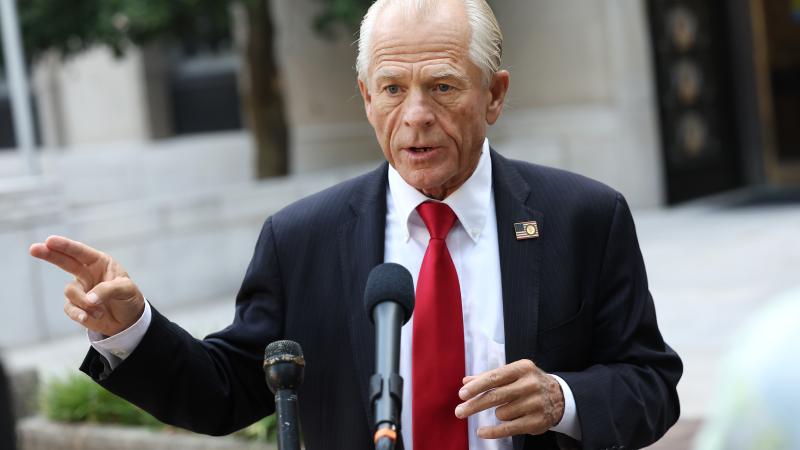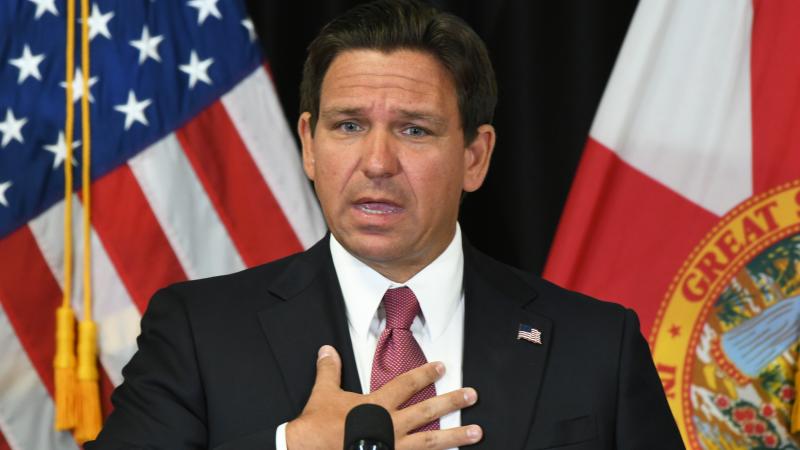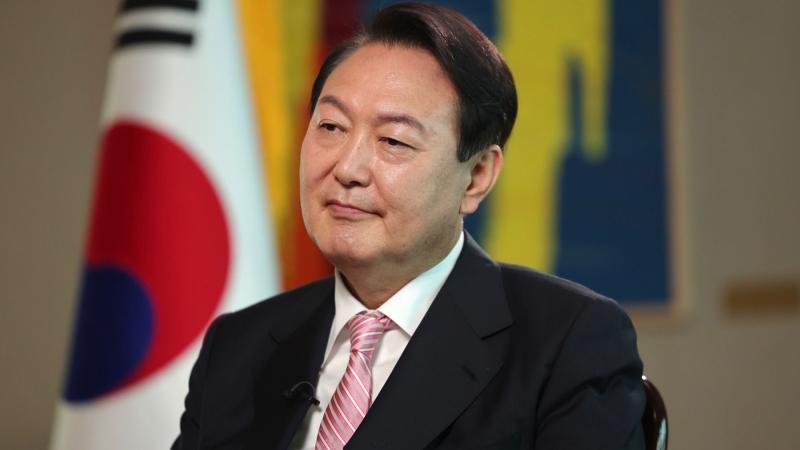Key US allies paralyzed awaiting Trump's return to world stage
“I think the sad thing is that if Donald Trump had been president this year, the UN government would have had a lot of victories to brag about,” Fleitz said.
President-elect Donald Trump’s foreign policy legacy of relative global stability was a major fixture of his 2024 campaign, which saw him espouse a “peace through strength” doctrine and a promise to wind down foreign wars. But his return to the world stage will see him contend with a much changed geopolitical order and volatility of even key American allies that could see him struggle to right the ship.
South Korea President Yoon Suk Yeol’s declaration and lifting of martial law this week and the ongoing protests surrounding that move mark only the latest major instance of constitutional crises or political wrangling threatening to destabilize some of America’s major strategic partners. The United Kingdom, France, and Germany, all NATO members and European heavyweights, have also witnessed major political struggles in recent months that could complicate Trump’s global peace initiatives.
All four have been critical partners in the Ukrainian war effort, for instance, and paralysis among those governments could conceivably undermine Trump’s efforts to end the war “in the first 24 hours” by denying him international support needed for leverage. The same might also apply to the Israel-Gaza conflict and, possibly, the renewed fighting in the Syrian Civil War.
Speaking on the “John Solomon Reports” podcast Tuesday, former National Security Council chief of staff Fred Fleitz opined that world leaders might have been better equipped to handle the many recent global tumults had Trump been in the White House at the time. “I think the sad thing is that if Donald Trump had been president this year, the UN government would have had a lot of victories to brag about,” he said. “Biden's lack of leadership and incompetence has driven global instability.”
“The good news is that we see a president coming in, who will be incredibly strong and decisive,” he said of Trump. But the new president won’t find even American allies quite as peaceful as he left them. Much of the world is seeing the same anti-incumbent sentiment that brought Trump back to his second presidency.
French prime minister faces no confidence vote
Michel Barnier, the French prime minister currently leading a minority government, is expected to lose his post by a no-confidence vote on Wednesday. Barnier took office in September after the National Assembly elections saw voters deliver a stinging rebuke to the party of French President Emmanuel Macron.
The opposition comes from both the political left and right over Barnier’s use of constitutional authority to force through a budget bill without the approval of the legislature. The right-wing National Rally and the left-leaning opposition parties have brought separate resolutions, but are expected to join forces to oust Barnier, CNBC reported.
Macron’s party and its allies hold a minority of seats in the National Assembly and it is unclear how Barnier’s ouster would impact control of the government. It would fall to Macron to appoint a new prime minister, though without a substantial shakeup in the governing bloc, the next office holder might succumb to the same fate. Since Macron called snap elections earlier this year, the National Assembly cannot hold new elections until next summer, potentially setting France up for a series of short-lived governments in the interim.
German coalition collapses
The German government also faces a no-confidence vote on Dec. 16 that will pave the way for February elections. Chancellor Olaf Scholz announced his plans to seek the vote in mid-November after the coalition government collapsed.
Scholz’s coalition included his Social Democrats, the Free Democrats under now-ex-Finance Minister Christian Lindner, and the Greens under Vice Chancellor Robert Habeck. Scholz fired Lindner last month, leading to his party leaving the coalition.
Current polling suggests the country could be heading for a major shakeup in its traditional dynamic, with the far-right AfD party poised to place second, behind the center-right Christian Democrats and ahead of Scholz’s Social Democrats. The AfD has attracted popularity with its opposition to the results of mass immigration and has gained ground in state elections in recent cycles. It has, however, also faced calls for a ban and other major parties have previously indicated they would not work with them. A strong showing for the AfD could possibly lead them to reconsider that stance, accept a minority government, or deal with another ideologically divided coalition.
The United Kingdom
Though unlikely to face another election or witness a substantive shift in government composition in the near future, the UK has seen the incumbent Labour government face a precipitous fall in public approval in just a few months.
Prime Minister Keir Starmer’s party won a landslide electoral victory in July, routing the incumbent conservative government and earning almost two-thirds of Parliament’s 650 seats. The conservatives had been rattled by their sluggish implementation of Brexit, a string of short-lived prime ministers, an influx in mass immigration, and a host of personal scandals.
By mid-October, however, Starmer saw a 49% drop in favorability from his 11% net positive when he won the election, Politico EU reported at the time. The cataclysmic drop in support for the government came amid budget reforms that included tax hikes as the government sought to balance the books.
More recent polling data from late November shows that in London, a longstanding Labour bastion, 19% of voters who backed the party in July would vote for another party were the election held then, according to The Standard. "This drop in support for the Labour Party among Londoners appears to be driven, at least in part, by the fact that many of those living in the capital are dissatisfied with the way the new government have been running the country,” said Queen Mary University of London’s Dr. Elizabeth Simon.
While Starmer may not need to face voters for several years, barring a major development, his unenviable position as the leader of an increasingly unpopular government is likely to make his ministry more sensitive to the domestic impact of world affairs on their constituents. His ministers’ own past statements on Trump, moreover, may prove awkward when dealing with the returning American leader.
South Korea
President Yoon Suk Yeol shocked the world with his declaration of martial law late Monday evening. The move — although short-lived — came as the lame duck president wrestled with the opposing party in the legislature on a wide array of issues and faced the prospect of cabinet impeachments over a scandal involving his wife.
Yoon insisted that his move came in response to “anti-state” forces that sympathized with Pyongyang and vowed to “eradicate pro-North Korean forces and protect the constitutional democratic order,” the Associated Press reported.
State Department spokesperson Vedant Patel said it was not the place of Washington to make “those kinds of conclusions” with respect to Yoon’s assertions about North Korean involvement.
Fleitz, for his part, indicated that Chinese and North Korean involvement in the incident was likely, saying “we have to assume that that is a factor here. And I've been in touch with people of South Korea and Americans who are very concerned about South Korea, who believe that China has been actively involved, meddling in South Korean politics, meddling in their elections.”
“[O]bviously North Korea and China have a vested interest in undermining South Korea's democracy, so I think we have to assume that's a factor here,” he added.
Opposition leaders and members of Yoon’s own party appear to have taken his assertions less seriously. Members of the National Assembly entered the building to hold a vote to lift martial law, despite military-imposed obstacles. The lawmakers who managed to reach the building overwhelmingly voted to lift martial law, though the constitution requires that the president and his ministers review the decision. The military has stated that martial law would remain in place until Yoon formally lifted it, the BBC reported. Yoon relented on Tuesday evening and agreed to end it following a meeting of the cabinet. The fate of his government is unclear.
Outside observers viewed Yoon’s move as a misstep. Speaking on the “Just the News, No Noise” television show, East Asian political analyst Gordon Chang lampooned the effort, saying “this must’ve been the most poorly planned declaration of martial law in our lifetimes.”
“This is going to undermine his presidency. He was already low in the approval ratings, about 17% approval. They're going to sink even further,” Chang said.












